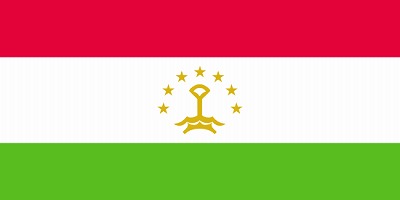 |
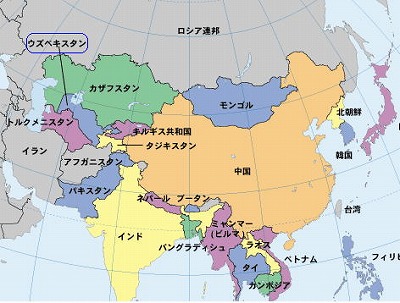 |
| Today I'm talking about a woman having a homestay from Tajikistan in 2005. | |
| 今日は2005年にタジキスタンから来てホームステイした女性について話そうと思います。 | |
| First let me show you about Tajikistan. | |
| まず最初にタジキスタンについて話させて下さい。 | |
| Tajikistan is located west of China, next to Afghanistan. |
|
| タジキスタンは中国の西、アフガニスタンの隣に位置しています。 | |
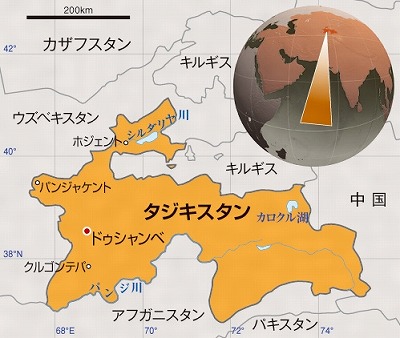 |
 |
| It was the Soviet bloc, but it became independent of Soviet bloc in 1991. |
|
| かつてはソビエト連邦に属していましたが、1991年に独立しました。 | |
become independent of〜 〜から独立する |
|
| Official language is Tajic language but over 40 year old people can speak Russian. |
|
| 公用語はタジク語ですが、40歳以上の人々はロシア語も話せます。 | |
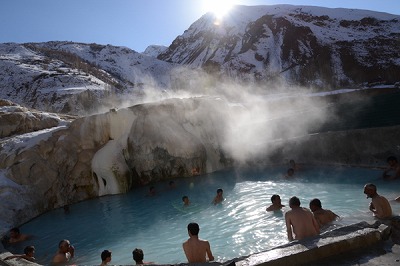 Hot spring ? 温泉? |
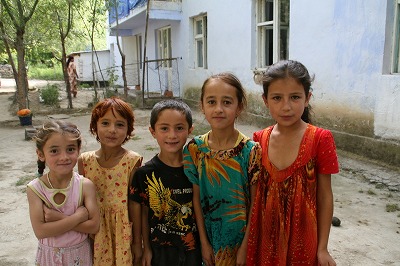 |
| Almost people are Muslim. | |
| ほとんどの人々はイスラム教徒です。 | |
| The climate is severe, especially winter. |
|
| その気候は厳しく、冬は特に厳しいそうです。 | |
weather は特定の日の天気のこと climate(クライメット)はある土地の平均的な気候のこと |
|
 |
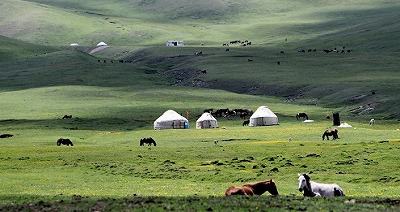 |
| Her name was Ms. G. | |
| 彼女の名前はG さんといいました。 | |
| She was 40 year nurse. | |
| 彼女は40歳の看護師さんでした。 | |
| この場合のyearは形容詞としてnurse(名詞)を形容するので yearsとはならない |
|
| She was married and had 2 children. | |
| 彼女は結婚しており、2人の子供がいました。 | |
| She came to Japan for study and training in Japanese hospitals. | |
| 彼女は日本の病院で研修を受けるために、日本にやって来ました。 | |
| It was the first time for us that homestay student can't speak English and even easy Japanese. |
|
| 私達にとって、英語、そして簡単な日本語さえ話せないホームステイの人は初めてのことでした。 | |
| I was in trouble, so I borrowed a Japanese-Russian dictionary from library. |
|
| 私は困ってしまい、図書館から日露辞典を借りてきました。 | |
| It was very helpful. | |
| それはとても役に立ちました。 | |
| When we cooked Kanazawa's local food "Ebisu" together, she looked worry to see powdered kanten(ager). |
|
| 金沢の郷土料理の”えびす”を作っていた時に、粉寒天を見て彼女は心配そうでした。 | |
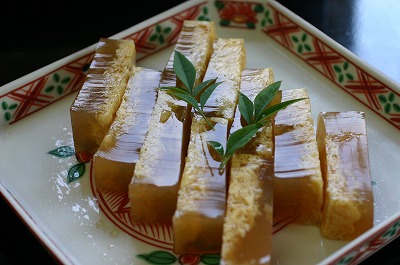 |
|
| The cooking materials are egg, ginger, soysauce, suger, and kanten. | |
| その材料は卵と生姜と醤油と砂糖と寒天です。 | |
| Those are no problem except kanten. | |
| それらは寒天を除いて問題はありません。 | |
| I thought she was worried "What is it made from ?" | |
| 彼女は「これって何で作られているのかな?」と心配したと私は思いました。 | |
| So I consulted a dictionary about kanten and gelatin. | |
| だから私は寒天とゼラチンについて辞書を引きました。 | |
consult a dictionary 辞書を引く |
|
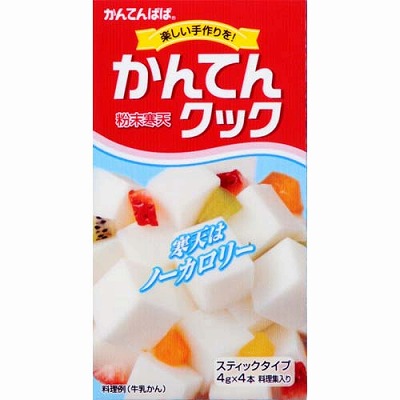 Kanten 寒天 |
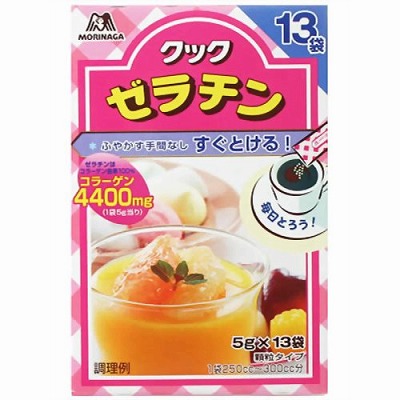 Gelatin ゼラチン |
| I explained her about kanten. "This is made from seaweed, not pig's bone. Don't worry" |
|
| 私は寒天について彼女に説明しました。 「これは海藻から作られていて、豚の骨ではありません。心配しないで。」 |
|
| There are various Muslim in the world. | |
| 世界にはいろいろなイスラム教徒がいます。 | |
| I thought Muslim don't have pork and liquor till then. | |
| 私はその時まで、イスラム教徒は豚肉を食べず、お酒を飲まないと思っていました。 |
|
| But lots of Tajikistan's people love liquor , especially vodka. | |
| でも多くのタジキスタンの人々はお酒が好きなんです、特にウオッカが。 | |
vodka(ヴォウカ) |
|
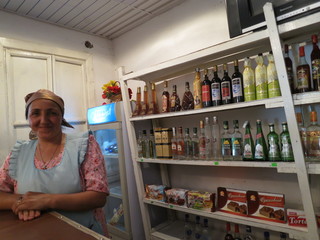 |
 |
| She didn't like it , though. | |
| 彼女は好きではありませんでしたが。 | |
though の使い方 あとから思いついたことを軽く付け足す時に使う |
|
| I took her to the supermarket with Japanese-Russian dictionary. | |
| 私は日露辞典を持って、スーパーマーケットに彼女を連れていきました。 | |
| Meat was difficult, we went to the fish-section, then I asked her, "How about this one? this one? this one?" |
|
| 肉はむずかしかったので、私達はお魚コーナーに行き、彼女にたずねました。 「これはどう? これは? これは?」 |
|
| Tajikistan is landlocked country, so they usually eat only cooked dry-fish. | |
| タジキスタンは内陸国ですから、調理した干し魚しか食べないんです。 | |
| According to her, most fishes are OK without cuttlefish, octopus and shellfish. | |
| 彼女によると、イカとタコと貝を除いて、ほとんどの魚は大丈夫だそうです。 | |
| She selected grilled ear. | |
| 彼女は鰻(うなぎ)のかば焼きを選びました。 | |
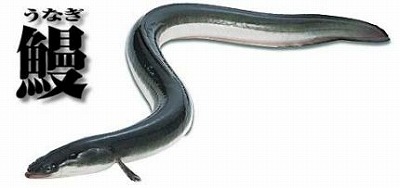 |
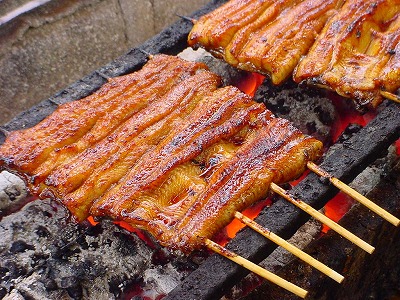 |
| After we got home, we cooked potato salad together. | |
| 家に帰ってから、私達は一緒にポテトサラダを作りました。 | |
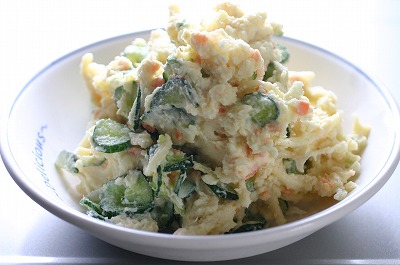 |
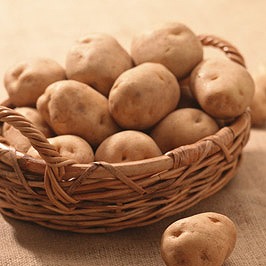 |
| She could peel a potato very well, that was so quick ! | |
| 彼女はじゃが芋の皮をとても上手にむけて、とても速かったんです。 | |
| I guess she was used to doing. | |
| 彼女はじゃが芋の皮むきに慣れているんだと思います。 | |
| The next day, I asked her, "I'll take you to somewhere today. Which do you prefer Samurai-House or Ishikawa-Zoo?" |
|
| 次の日、私は彼女に尋ねました、「私は今日、あなたをどこかに連れていきます。 武家屋敷と石川動物園のどっちがいいですか?」 |
|
 |
 |
| She answered "I'd like to go to the zoo." | |
| 彼女は「私は動物園に行きたいです。」と答えました。 | |
| My expectation came true. | |
| 私の予想は当たりました。 | |
| In the zoo, we watched a tiger in front of a tiger glass cage. | |
| 動物園で、私達はガラスの虎の檻の前で、虎を見ていました。 | |
| Suddenly the tiger ran at full speed and tried to jump on us. | |
| 突然、その虎は猛スピードで走ってきて、私達に飛びかかろうとしました。 | |
 |
|
| I was surprised to see it and shouted, "Kya〜" | |
| 私はそれを見て驚き、「キャー」と叫びました。 | |
| But she was standing with a poker face next to mine. | |
| ところが彼女は私の隣でポーカーフェイスで立っていました。 | |
| Actually she was always poker face like Nou-mask in Japan. | |
| 実は彼女は日本の能面のように、いつも無表情でした。 | |
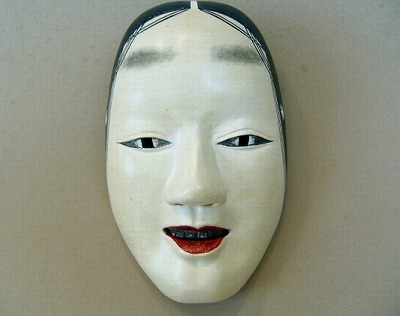 |
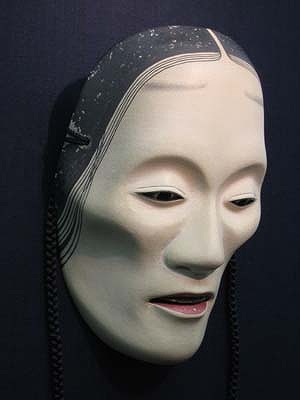 |
| I didn't know what she was thinking. | |
| 私は彼女が何を考えているのかわかりませんでした。 | |
| Especially she didn't smile at all. | |
| 特に彼女は全く笑いませんでした。 | |
| The next day, we did a tea celemony (fake) at our house. | |
| 翌日、私達は家で(インチキ)茶道をしました。 | |
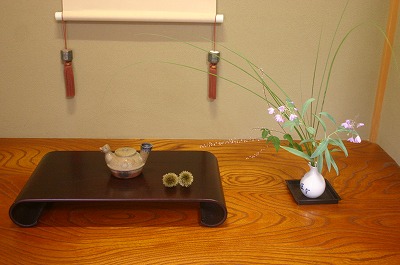 |
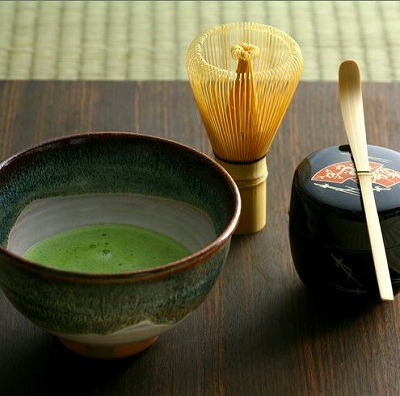 |
| Because we almost didn't need to speak during tea celemony. | |
| なぜならば、茶道の間、私達はほとんど話す必要がないからでした。 | |
| I told her "Copy after me, will you?" | |
| 私は彼女に「私の真似をして下さい」と言いました。 | |
| When I entered the Japanese room and looked at a Sumie painting, I said "хороший(Harasho) in Russian" |
|
| お座敷に入って墨絵を見た時に、私はロシア語で「素晴らしい」と言いました。 | |
| Then, finally……finally she laughed so much ! ! ! | |
| その時、ついに……ついに彼女はすごく笑ったんです!!! | |
| I was very happy to see that. | |
| 私はそれを見て、とてもうれしかった。 | |
 |
|
| 2015年11月26日(木) | トップページへ戻る |